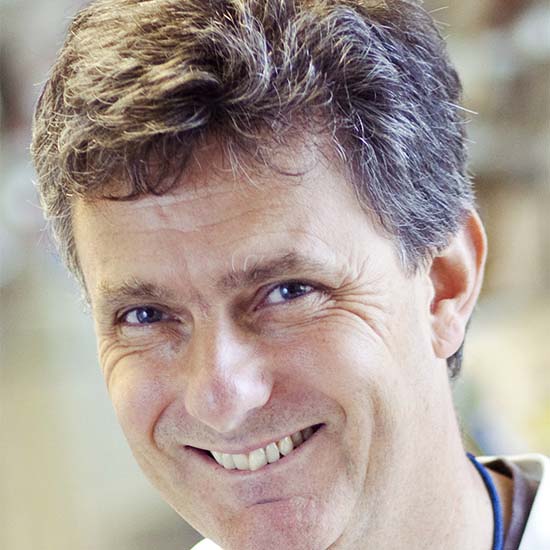Mike Malim employs laboratory- and cohort-based methods to study the biological principles that underpin HIV infection, its control and AIDS — the disease it causes. This information can be leveraged to develop or improve antiviral therapies, HIV vaccination strategies, and, potentially, approaches for HIV cure.
His research spans multiple facets of the HIV replication cycle, including: viral RNA trafficking and nuclear export, virus particle assembly, the essential roles played by HIV-encoded regulatory factors, and cellular proteins that naturally suppress virus growth. Through studying the HIV Vif protein, his group discovered its essential role in disabling antiviral APOBEC3 proteins that otherwise block replication by a novel pathway of virus-targeted mutations. More recently, Mike has described how the human MX2 protein inhibits HIV infection by impeding the essential process of viral uptake by the cell nucleus.
Mike continues to investigate the factors that dictate the balance of power between HIV and human immunity. He received an Elizabeth Glaser Pediatric AIDS Foundation Scientist Award in 2001, and the Ming K. Jeang Foundation-supported Retrovirology Prize in 2010.
Subject groups
- Microbiology, immunology and developmental biology
General microbiology (incl bacteriology and virology)

